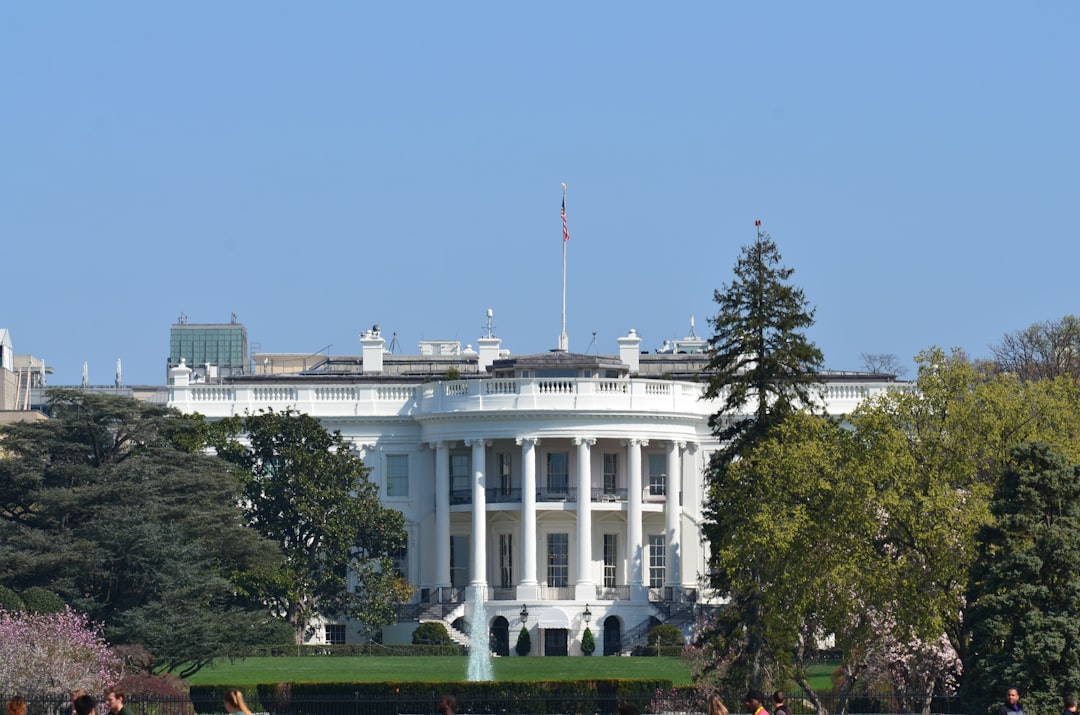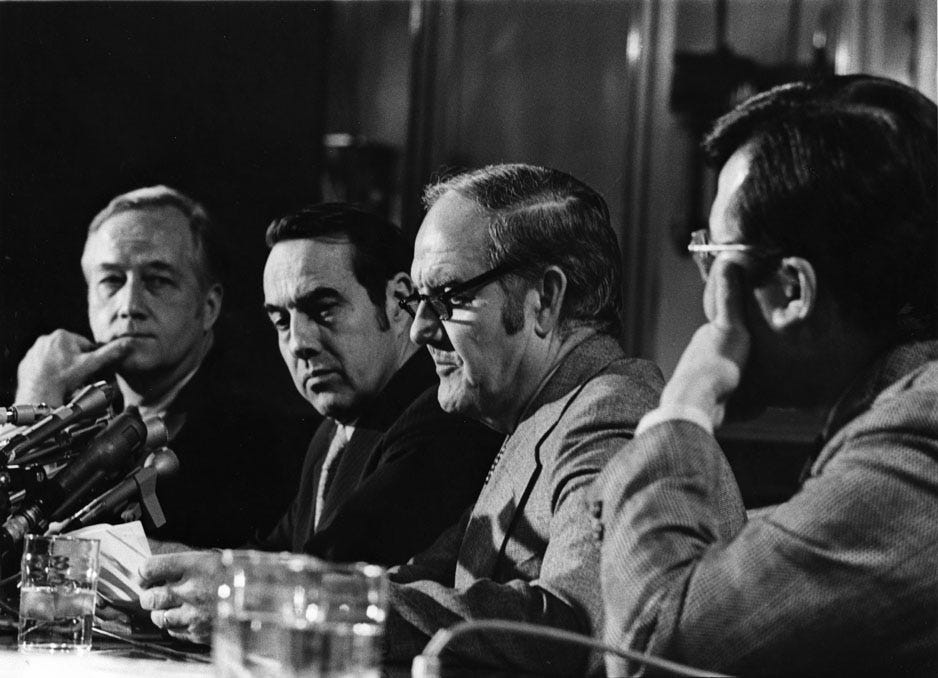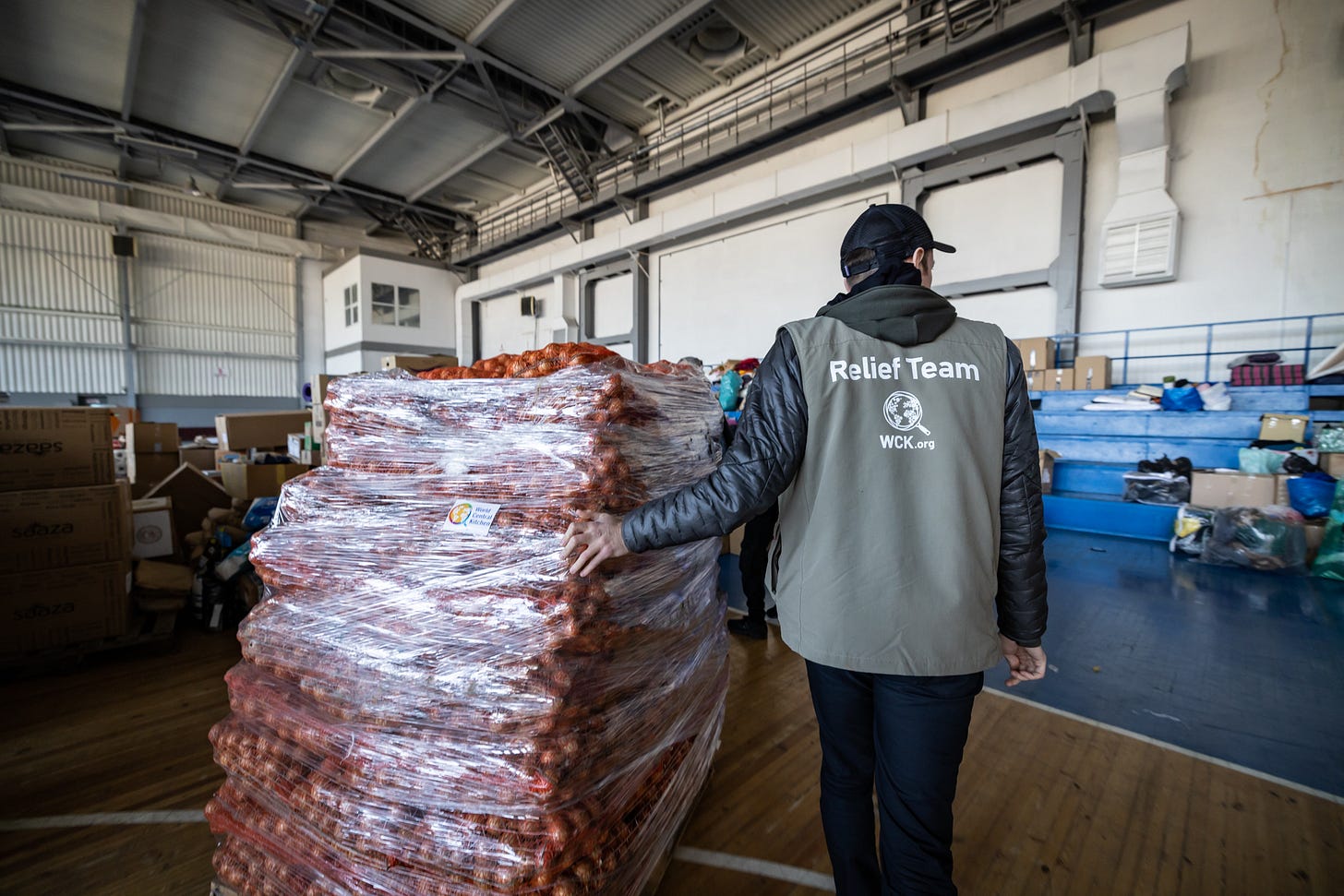At last, a White House Food Conference
For the first time in 50 years, America has a chance to reimagine our food system.
Hello, People of Substack!
I believe that food is a universal human right. Everything I do, whether it's disaster relief, or pushing for changes in food policies like the farm bill, childhood nutrition, school food, or nutrition insecurity comes from that feeling inside me.

That’s one of the reasons I am happy to share that I am going to be part of the White House Conference on Hunger Nutrition and Health, being held in September. President Biden organized the conference which aims to reduce rates of diabetes, obesity, and hypertension, and accelerate efforts to end hunger across the nation. I’ll be there along with leaders from food business, health care, and local and state governments.
You know I am not really big on sitting around in meetings talking; I am more a fan of doing. But this is important. It is the first time the White House has hosted a conference focused on food insecurity since President Richard Nixon held one in 1969.
What came out of Nixon’s conference set the foundation for many of today’s important food policies: It led to expansions of the food-stamp program and the school-lunch program, the creation of the Special Supplemental Nutrition Program for Women, Infants, and Children, which provides milk and fresh fruits and vegetables to young children and their mothers, and improved nutrition labeling.
But it’s been more than 50 years. So it’s more than time to bring the focus back to the role that food plays in every part of our lives.

What am I thinking that we can do at this conference? Some of my ideas and recommendations won’t surprise you.
America, the most powerful country in the history of mankind, has the tools to make sure that no children are hungry, and that no family should feel the shame of not being able to feed themselves.
You know, if Ukraine is showing us anything, it's that we take food for granted. The world is about to go hungry because the war is affecting global food supplies, causing the prices of key foods produced in the region — including wheat — to skyrocket and many countries are fearing shortages. The cost of soybeans, corn and vegetable oils have also increased.
The federal government must be here to be the wind behind the sails to move the ship forward. We need to take food seriously or one day we may find ourselves surprised that America is destabilized because of a lack of food.
One of the main problems is that the leaders of the richest countries in the world, like those of the poorest, do not have food experts by their side. Here in the U.S., many of the food policies are carried out through the Department of Agriculture (the USDA). There are many good people at the USDA. Without taking anything away from the USDA’s work, food is much more. The conversation about food policy must also consider things like labor, transportation, and corporate America, which profoundly shape how this country is, or isn’t, fed.
That is why I will be fighting to create a cabinet position in the White House: a Secretary of Food, not just a Secretary of Agriculture, because food touches on everything—equality, obesity, social justice, immigration, climate change, even national security.
I also hope to see a discussion of FEMA and disaster response. In our current system, nobody is in charge of food and water to help our neighbors when disaster strikes. All of these issues—everything from hunger and disaster relief to agriculture and food diplomacy efforts (like supporting Central American farmers to help reduce the stream of migrants to the U.S.) — must be tackled together and seen as a one holistic policy.
My hope is that this conference will be just the beginning of a conversation that leads to action. I am not blind to the divisions in our country, believe me, but I am an optimist, and I believe that together, by building longer tables like the one we will set together at this conference, we can work together toward the goal of making food a universal human right.







OMG I have tears of hope Jose Andres thank you. No one understands the dilemma and more importantly how to tackle quickly using resources to solve it quickly and efficiently as you do. You are a catalyst for improvement feeding and nurturing those in need. Positive signs of life
As you discuss food insecurity, please also add to the agenda food deserts in our urban areas, partnering to create urban farms on vacant lots, the price of fresh food compared with the price of fast food and food at corner bodegas. And, food for the elderly Thanks for all you do!!